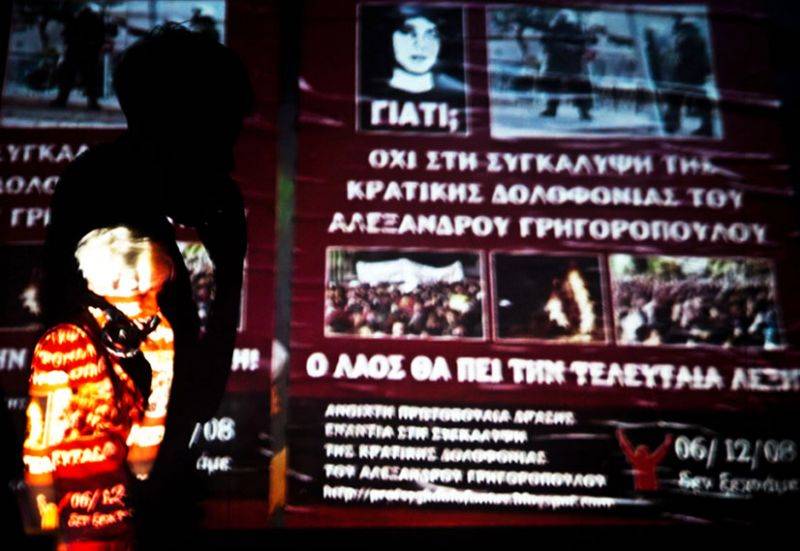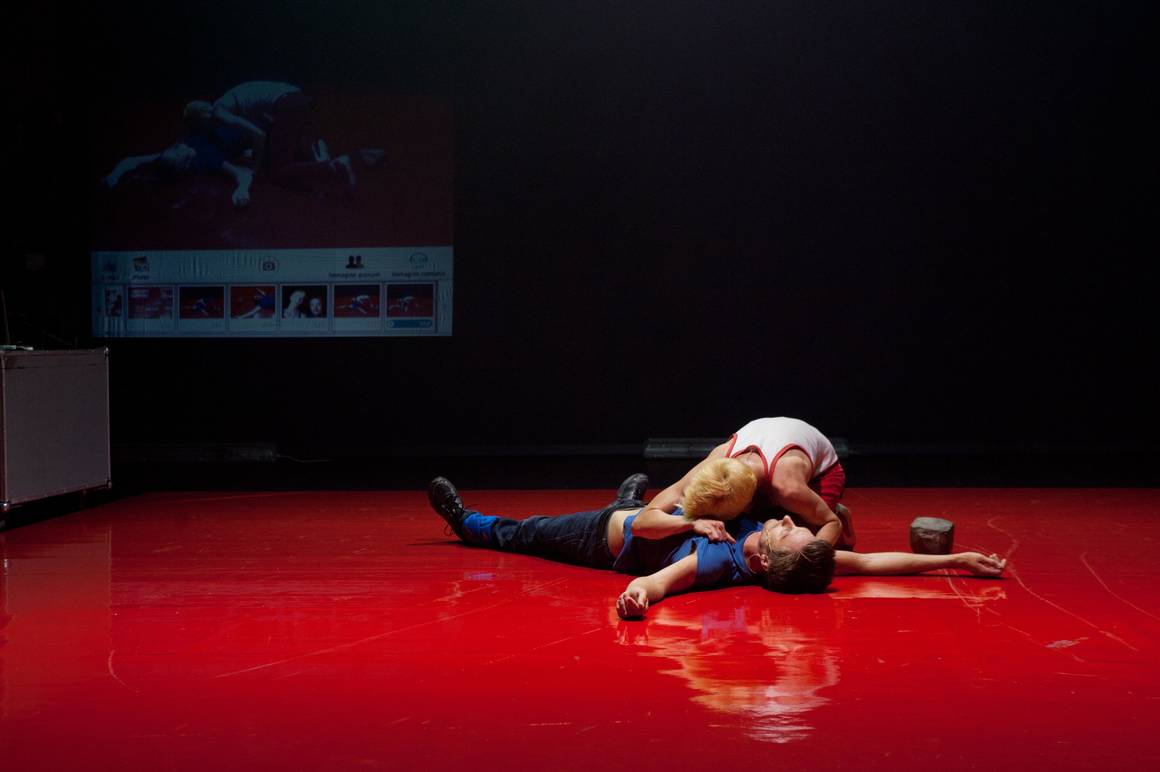Alexis. La Tragedia Greca. A Contemporary Play with a Classical Touch
It certainly is futile to try to decide the order of which had the first influence, art on society or society on art, but it is crucial to raise awareness of this unique symbiosis. The further one examines this fusion of impacts the more one becomes cognizant of the power each has on the other, especially bidding for changes, both in art due to societal influence and in society when art is used as a tool in social change.
A similar question is raised in the play Alexis. A Greek Tragedy, a Motus production by Enrico Casagrande and Daniela Nicolò featuring actors: Silvia Calderoni, Vladimir Aleksic, Benno Steinegger and Alexia Sarantopoulou. The fourth play in the project Syrma Antigónes is presented by La Mama and The Public Theaters during the Under the Radar Festival.
“Is art enough?” This is one of the questions posed to the audience by Silvia, the play’s embodiment of Antigone, when she is faced with a statement of one of the speakers in the documentary displayed throughout the play. He bluntly tells them that art is not sufficient to accomplish anything. Yet the play shows otherwise by becoming an artistic proof of art’s impact on social change, often creating provocative interpretations of social and political issues promoting reflection, conversation and commencing assessment of the problem at hand. This particular play, tells the story of the death of a fifteen year old Alexandros-Andreas Grigoropoulos (Alexis), shot by a police officer on the 6th of December, 2008 in the Exarchia sector of central Athens, an event that sparked the weeks long devastating riots. At the same time it addresses a far larger issue than just that of retelling the story of the slain youth: it examines the potential of it being the detonating fuse of the revolts shaking up major cities around the globe in the past few years.
The performance, cleverly juxtaposed against the story of Antigone shares many of its themes, among them the widely recognized premise of the individual’s right to reject societal restraints, in Antigone’s case her freedom to perform what she felt to be a personal obligation, that of the burial of her bother Polynices. In the play one finds many comparisons between the “real” story of Alexis and the riots and the fictional Greek play and its characters. Creon therefore is mirrored in the Greek government, its rules and enforcement, and Antigone is “physically present” in Silvia, but is also the voice of the individual, of the deceased Alexis, of the public, the citizen, of the audience in a way.
Few props are used during the performance, but the actors skillfully elicit emotion from the audience mesmerizing them initially with strange, continuous, robotic sounds and violent movement of a human figure, the motus perpetuus masterfully staged, and then throughout the play when the actors run into the crowd and the stage moves to within the public or during the final acts when they “call to arms.” The main idea behind the play is to demonstrate what art can do for social change as well as to show the power of a single event in generating a waterfall of locked up emotions which often have a deeper root. In the case of the riots after Alexandros’ death, the younger generation frustrated by the country’s economical problems, lack of perspective and evident corruption in the Greek state institutions showed their strength in number as they revolted. Motus intrigues, they make one think, they get involved in a social and political issue, they bring awareness to its existence, and they involve their viewers, or rather invite them to be involved. So, as they come out on stage one by one in their final act, one, two, three, four… what will you do when they ask for the fifth member?
On January 4th, the play opened at the La Mama Theater (74A 4th St) and began the Under the Radar Festival. The premiere was not surprisingly sold out, with the small theater filled to the last seat. The spectacle was followed by a very New York style after-party at the nearby Public Theater’s LuEsther Hall. Marche Region provided the selection of cheeses and wine for the event and the celebration of URFs opening continued to late hours.
Alexis. A Greek Tragedy can be seen until January 14th at La Mama Theater. For tickets and more info visit: http://www.undertheradarfestival.com/index.php?p=460
To read more about Motus and their productions visit: http://www.motusonline.com/






































i-Italy
Facebook
Google+
This work may not be reproduced, in whole or in part, without prior written permission.
Questo lavoro non può essere riprodotto, in tutto o in parte, senza permesso scritto.